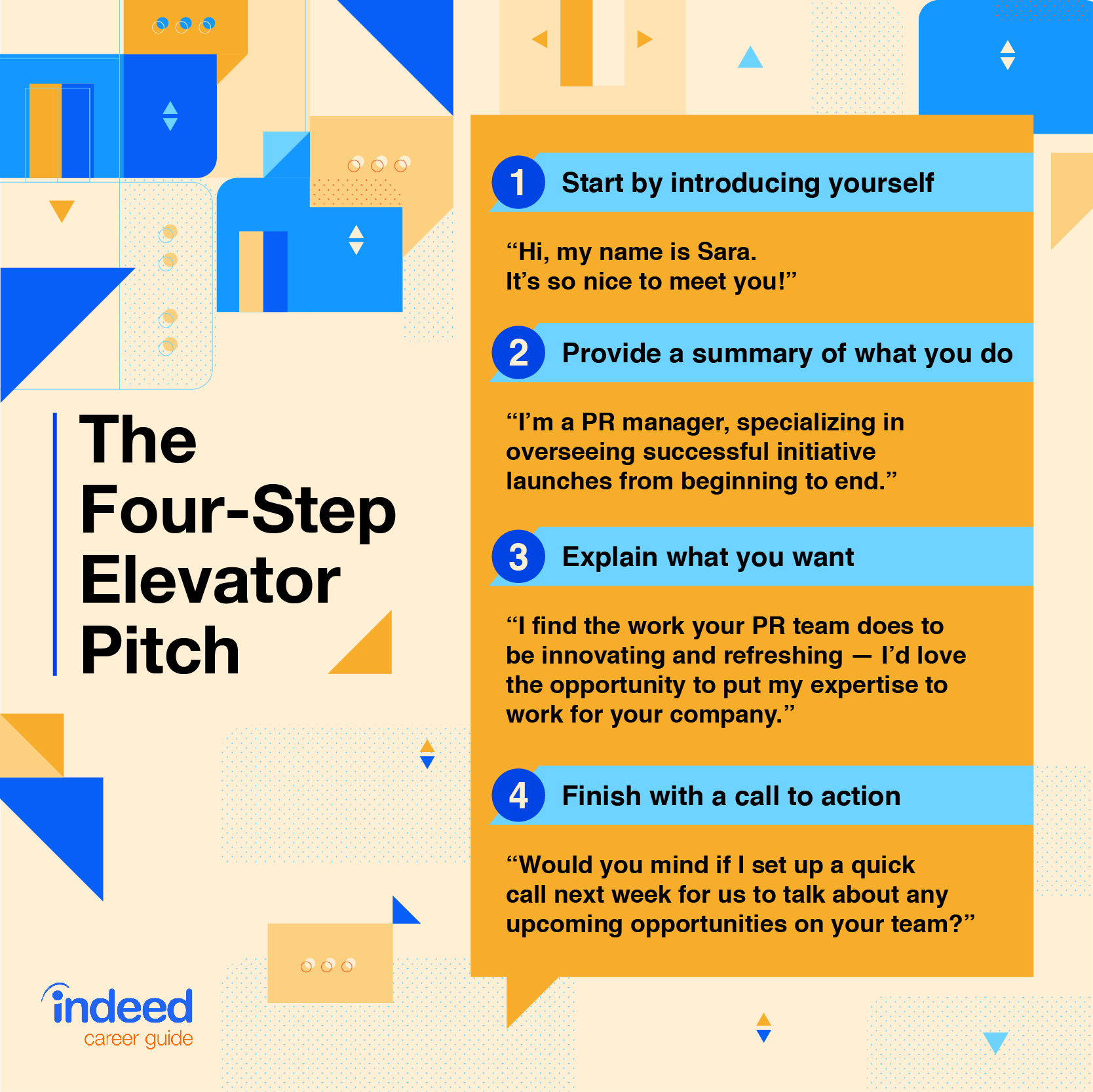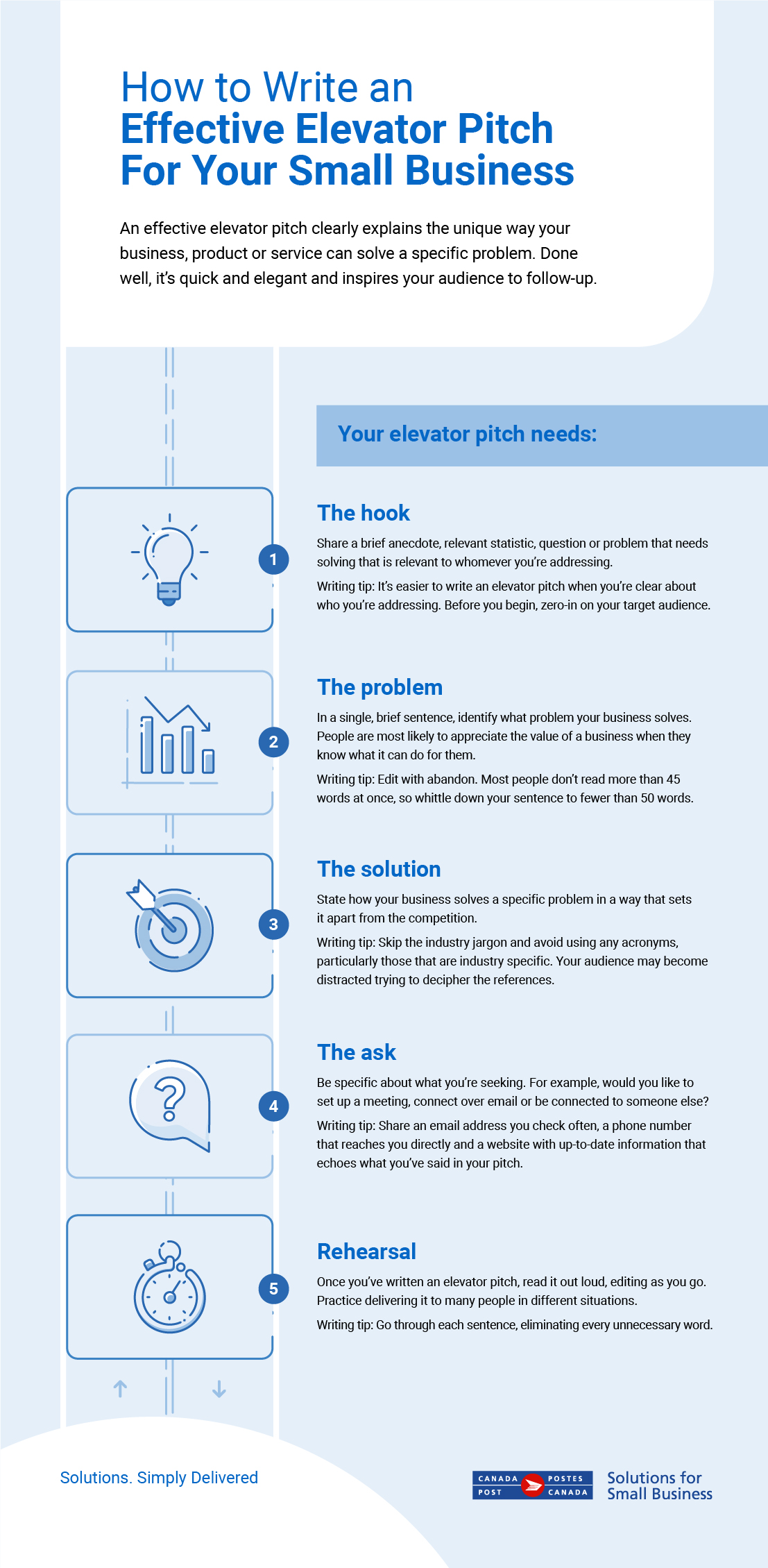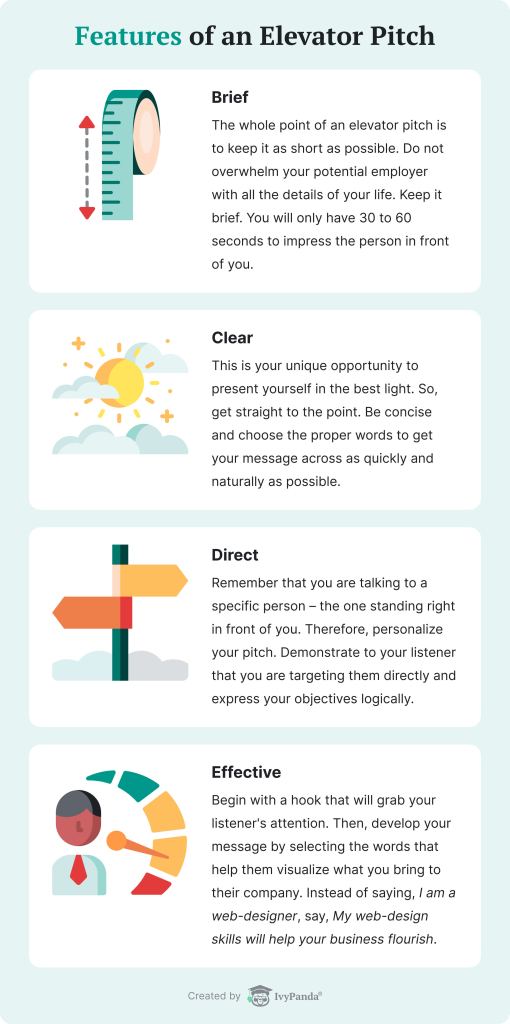How to develop a strong elevator pitch for Canadian job fairs
Are you attending a Canadian job fair and want to make a lasting impression on potential employers? Developing a strong elevator pitch is crucial. An elevator pitch is a concise and persuasive introduction that showcases your skills, experience, and goals in a brief time frame. In this article, we will provide you with practical tips and strategies to help you craft a compelling elevator pitch that will wow recruiters and set you apart from the competition. Whether you are a recent graduate or an experienced professional, mastering the art of the elevator pitch is essential to successfully navigate Canadian job fairs and make a strong impression on employers.

Understanding the Importance of an Elevator Pitch for Job Fairs
Defining an elevator pitch
An elevator pitch is a succinct and persuasive introduction that is typically delivered in 30 seconds to one minute, the duration of an elevator ride. It serves as a concise summary of who you are, what you do, and what unique value you bring to potential employers. The goal of an elevator pitch is to capture the attention of the listener and leave a lasting impression.
Benefits of having a strong elevator pitch
Having a strong elevator pitch is essential, especially when it comes to job fairs. Job fairs are bustling events where you have limited time to make an impression on employers who may be flooded with countless candidates. A well-crafted elevator pitch can help you stand out from the crowd and make a memorable first impression. It demonstrates your professionalism, confidence, and ability to articulate your skills and experiences concisely. A strong elevator pitch can open doors to networking opportunities, interviews, and ultimately, landing your dream job.
Key role of an elevator pitch in Canadian job fairs
In the Canadian job market, where competition is fierce, a strong elevator pitch can be an invaluable tool. Job fairs provide an opportunity to connect with employers, showcase your qualifications, and network with industry professionals. However, the limited time available at job fairs makes an elevator pitch even more crucial. It allows you to quickly convey your value proposition and capture the attention of potential employers. A well-crafted elevator pitch can leave a lasting impression and set the stage for further conversations and potential job opportunities.
Researching the Canadian Job Market and Culture
Gaining insights into the Canadian job market
Before crafting your elevator pitch, it’s important to gain a thorough understanding of the Canadian job market. Researching industry trends, job postings, and company culture can provide valuable insights. Explore industry-specific websites, job boards, and professional networks to stay informed about the latest developments in your field. Understanding the demand for certain skills, the job market’s competitiveness, and emerging opportunities can help you tailor your elevator pitch to match the current needs of employers.
Understanding the values and culture of Canadian employers
Canadian employers often prioritize a set of core values that guide their hiring decisions and company culture. These values may include teamwork, inclusivity, social responsibility, and adaptability. Tailoring your elevator pitch to align with these values can make a positive impression on potential employers. Research the companies you are interested in, visit their websites, and read annual reports to get a sense of their mission, vision, and values. Incorporating these concepts into your elevator pitch can demonstrate your cultural fit and increase your chances of success.
Adapting your elevator pitch to align with Canadian expectations
In addition to understanding the Canadian job market, it’s crucial to adapt your elevator pitch to meet Canadian hiring expectations. Employers in Canada generally value a balance between professionalism and personability. Focus on being concise, clear, and confident while also showcasing your unique personality and passion. Take the time to learn about Canadian business etiquette, such as firm handshakes, maintaining eye contact, and using appropriate language. Adapting to Canadian expectations will help you build rapport with potential employers and create a positive impression.

Identifying Your Unique Selling Points
Recognizing your skills, experiences, and qualifications
Before developing your elevator pitch, take inventory of your skills, experiences, and qualifications. Reflect on your educational background, professional experiences, certifications, and any other relevant training you have completed. Consider both technical and soft skills that are in high demand in your field. Identifying your unique selling points will help you craft a compelling elevator pitch that showcases what you bring to the table and sets you apart from other candidates.
Highlighting your accomplishments and achievements
While listing your skills and qualifications is important, it’s equally critical to highlight your accomplishments and achievements. Employers want to see concrete evidence of your past successes and contributions. Think about specific projects you have worked on, goals you have achieved, and any measurable outcomes you have delivered. Quantify your achievements whenever possible to give potential employers a clear understanding of your impact. By focusing on your accomplishments, you can make a stronger case for your value as an employee.
Understanding what sets you apart from other candidates
To craft an elevator pitch that stands out, you need to understand what sets you apart from other candidates. Consider your unique combination of skills, experiences, and qualifications. Determine what makes you different and why an employer should choose you over other candidates. This could be a specialized skill, a unique perspective, or a particular experience that aligns with the employer’s needs. Clearly articulating what sets you apart in your elevator pitch will make a memorable impression and increase your chances of making a connection with potential employers.
Structuring Your Elevator Pitch
Introduction: Grabbing attention and stating your name
The opening of your elevator pitch plays a crucial role in capturing the listener’s attention. Begin by introducing yourself and stating your name clearly. Consider using a confident and friendly tone to create an immediate connection. Make sure to pronounce your name clearly and confidently, as this will set a positive tone for the rest of your elevator pitch.
Background: Providing a brief overview of your professional journey
After introducing yourself, provide a brief overview of your professional journey. Summarize your relevant education, previous work experience, and any notable achievements. Keep this section concise and focus on the aspects that are most relevant to the job or industry you are targeting. The goal is to pique the listener’s interest and create a foundation for the rest of your elevator pitch.
Skills and experience: Highlighting relevant qualifications
Following your background, highlight your relevant skills and experiences. Focus on the specific qualifications that make you a strong fit for the job or industry. If possible, mention any certifications or specialized training you have completed. Emphasize how your skills align with the employer’s needs and how they can benefit from your expertise. This section should showcase your expertise and demonstrate your value to potential employers.
Accomplishments: Showcasing your achievements and contributions
Next, highlight your significant accomplishments and contributions. This part of your elevator pitch should showcase concrete examples of how you have added value in previous roles. Talk about specific projects you have successfully completed, milestones you have reached, or challenges you have overcome. By demonstrating the impact you have made in the past, you are providing evidence of your potential value to the listener.
Conclusion: Ending with a memorable closing statement
As you conclude your elevator pitch, it’s important to end with a memorable closing statement. This final statement should summarize your elevator pitch and leave a lasting impression. Consider using an impactful and inspiring statement that aligns with your personal and professional goals. End on a positive note, expressing your enthusiasm and willingness to learn and contribute to the employer’s success.

Crafting a Compelling Opening
Creating a strong hook to capture the listener’s interest
The opening of your elevator pitch needs to grab the listener’s attention right away. One effective way to do this is by creating a strong hook that immediately captures their interest. You can accomplish this by starting with a thought-provoking question, a surprising statistic, or a compelling statement. The goal is to make the listener curious and engaged right from the start.
Using a personal story or impactful statement
Another way to craft a compelling opening is by using a personal story or impactful statement. Share a brief anecdote that demonstrates your passion for your field or your dedication to achieving your goals. By making your pitch more personal and relatable, you can create a deeper connection with the listener. Choose a story or statement that reflects your values and showcases your unique perspective.
Establishing a connection with the listener
Lastly, it’s important to establish a connection with the listener in your opening. This can be done by tailoring your opening to the specific job fair or industry you are targeting. Demonstrate your knowledge and interest in the industry by referring to recent trends or challenges. Additionally, you can mention any common connections or shared experiences that you have with the listener. Making a personal connection from the beginning can help establish rapport and create a more memorable elevator pitch.
Tailoring Your Pitch to Job Fair Opportunities
Researching the companies attending the job fair
Before attending a job fair, take the time to research the companies that will be in attendance. Visit their websites, read about their missions and values, and browse through their job postings if available. By familiarizing yourself with these companies, you can tailor your elevator pitch to align with their specific needs and requirements. Highlight the skills and experiences that are most relevant to the companies you are interested in, and incorporate any industry-specific terminology that may resonate with potential employers.
Customizing your pitch based on specific employers or industries
In addition to researching the companies attending the job fair, consider customizing your elevator pitch based on specific employers or industries. Different companies may have different priorities and hiring needs, so it’s important to adapt your pitch accordingly. If you are targeting multiple industries, create variations of your elevator pitch that highlight the skills and experiences most relevant to each industry. By customizing your pitch, you can demonstrate your awareness of the unique challenges and opportunities within different sectors.
Addressing the employer’s needs and demonstrating alignment
When tailoring your elevator pitch, it’s crucial to address the employer’s needs and demonstrate alignment. Showcasing an understanding of the company’s goals and challenges can make a powerful impression on potential employers. Research the specific job roles or departments you are interested in and understand the required skills and qualifications. Then, highlight how your unique selling points align with their needs and how you can contribute to their success. By showing that you have done your homework and can meet their requirements, you increase your chances of making a meaningful connection at the job fair.

Using Clear and Concise Language
Avoiding jargon and technical terms
When developing your elevator pitch, it’s important to avoid jargon and technical terms that may confuse or alienate the listener. Keep in mind that job fair attendees may come from various backgrounds and may not have the same level of familiarity with industry-specific terms. Aim to use clear, plain language that is easily understandable by a wide audience. By doing so, you ensure that your elevator pitch is accessible and engaging to everyone you interact with.
Keeping sentences short and to the point
In addition to avoiding jargon, it’s important to keep your sentences short and to the point. Remember that you only have a limited amount of time to make an impression at a job fair. Be succinct and avoid unnecessary details or tangents. Use simple language and focus on the most important aspects of your skills and experiences. By keeping your elevator pitch concise, you make it easier for potential employers to understand and remember your key points.
Practicing and refining your pitch for clarity
To ensure that your elevator pitch is clear and concise, it’s crucial to practice and refine it. Practice delivering your pitch in front of a mirror or with friends or family members. Pay attention to any areas where you stumble, where sentences become convoluted, or where your message could be better communicated. Refine your pitch by iterating and improving upon your initial drafts. Seek feedback from trusted mentors or career advisors to gain insights and refine your pitch for optimal clarity.
Incorporating Keywords and Buzzwords
Identifying relevant keywords in job postings and industry trends
To make your elevator pitch more impactful, identify relevant keywords from job postings and industry trends. Pay attention to the language used in job descriptions and highlight the qualifications and skills that employers are seeking. Incorporating these keywords into your pitch can help your message resonate with potential employers. Additionally, stay informed about current industry trends and use relevant buzzwords to demonstrate your familiarity with the field. This shows that you are up-to-date and engaged with your industry, making you a more compelling candidate.
Integrating industry-specific terminology to demonstrate expertise
Integrating industry-specific terminology into your elevator pitch can help demonstrate your expertise and credibility. Use technical terms or acronyms that are commonly used in your industry to showcase your familiarity with the field. However, be mindful of your audience and ensure that your use of terminology is appropriate and understood by non-experts. Your goal is to strike a balance between showcasing your knowledge and ensuring that your pitch remains accessible and engaging.
Using powerful and impactful words to leave a lasting impression
Powerful and impactful words can make your elevator pitch more memorable and leave a lasting impression. Choose words that convey confidence, enthusiasm, and a sense of drive. Use action verbs to describe your accomplishments and contributions. Instead of saying you “assisted” with a project, say you “led” or “initiated” it. By choosing powerful and impactful words, you create a stronger and more persuasive pitch that grabs the listener’s attention and makes a lasting impression.

Practicing and Fine-tuning Your Delivery
Rehearsing your elevator pitch in front of a mirror
To deliver your elevator pitch confidently, it’s essential to practice and rehearse it in front of a mirror. Stand in front of a mirror and deliver your pitch, paying attention to your body language, facial expressions, and overall presentation. Notice any areas where you can improve your delivery, such as speaking too quickly, lacking confidence, or not making enough eye contact. Make adjustments and continue practicing until your delivery feels smooth, natural, and engaging.
Seeking feedback from peers or mentors
In addition to practicing in front of a mirror, seek feedback from trusted peers or mentors. Ask them to listen to your elevator pitch and provide constructive criticism. Pay attention to their feedback and identify areas where you can improve. This outside perspective can be invaluable in identifying blind spots, areas for refinement, and opportunities to make your pitch even stronger.
Refining your pitch based on input and self-assessment
Once you have gathered feedback from others and conducted self-assessment, refine your elevator pitch accordingly. Incorporate the suggestions and improvements identified during the feedback process. Be open to making changes and iterating upon your pitch to ensure that it is as strong and compelling as possible. Remember that your elevator pitch should be a dynamic document that evolves over time as you gain more experiences and insights.
Expanding Your Network and Building Confidence
Approaching job fair attendees with professionalism and enthusiasm
Attending job fairs provides an excellent opportunity to expand your professional network. Approach job fair attendees with professionalism and enthusiasm to make a positive impression. Engage in conversations with employers, recruiters, and other industry professionals in a respectful and courteous manner. Be genuinely interested in learning about their companies and initiatives. This approach demonstrates your professionalism and shows that you are proactive and engaged in your job search.
Engaging in meaningful conversations and active listening
When interacting with job fair attendees, aim to engage in meaningful conversations rather than simply exchanging pleasantries. Ask thoughtful questions about the company, industry, or current trends to demonstrate your interest and knowledge. Actively listen to the responses and show genuine curiosity. Engaging in meaningful conversations not only helps you gather valuable insights but also allows you to leave a positive impression on potential employers by demonstrating your engagement and enthusiasm.
Exuding confidence and maintaining eye contact
Confidence plays a crucial role in making a strong impression at job fairs. Exude confidence through your body language, tone of voice, and overall demeanor. Stand tall, maintain good posture, and make eye contact with the person you are speaking to. A confident and assertive demeanor conveys that you believe in your abilities and adds credibility to your elevator pitch. Remember that confidence is contagious, and potential employers are more likely to be interested in you if they sense your self-assurance.
In conclusion, understanding the importance of an elevator pitch for job fairs is fundamental to making a lasting impression on potential employers. By defining what an elevator pitch is, recognizing the benefits, and understanding its key role in Canadian job fairs, you lay the groundwork for success. Researching the Canadian job market and culture, identifying your unique selling points, and structuring your elevator pitch effectively are crucial steps in developing a strong pitch. By crafting a compelling opening, tailoring your pitch to job fair opportunities, using clear language, incorporating keywords and buzzwords, and practicing your delivery, you increase your chances of standing out from the competition. Lastly, expand your network and build confidence by approaching job fair attendees with professionalism, engaging in meaningful conversations, and exuding confidence. With these tips in mind, you’ll be well-equipped to develop a strong elevator pitch that will help you thrive at Canadian job fairs and make significant strides in your career.







